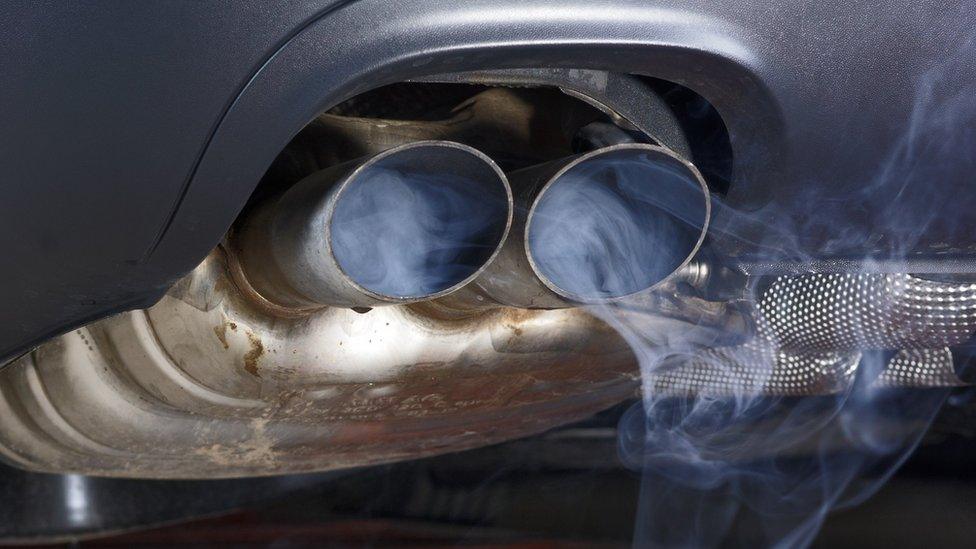Greater Manchester Clean Air Zone: Mayor rejects driver charges
- Published
- comments
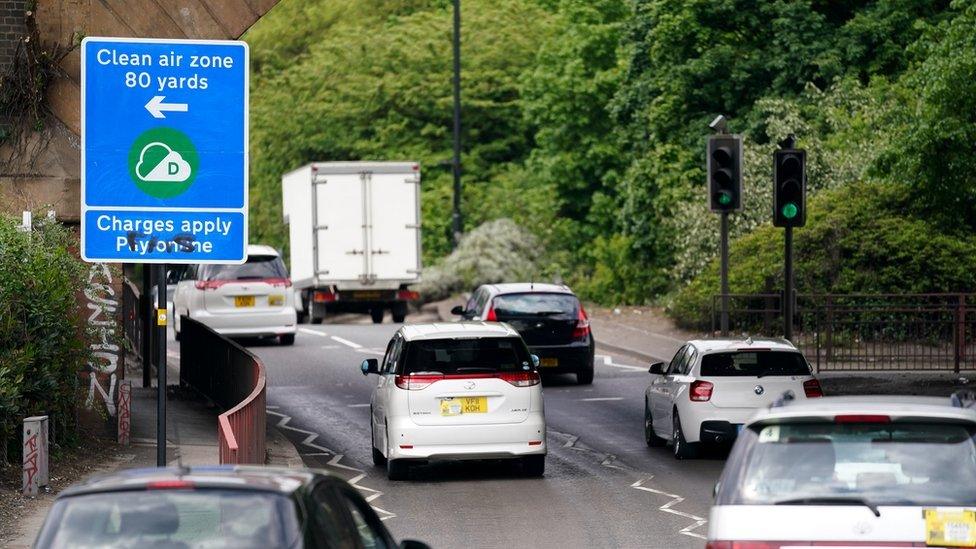
The government will decide whether to back the non-charging Clean Air Zone plan
Investing in cleaner transport will help reduce air pollution in Greater Manchester quicker than charging drivers who enter a zone, the region's mayor Andy Burnham has said.
More emissions would be cut by spending £86m on electric buses, taxi upgrades and traffic measures, he said.
The non-charging proposal aims to cut air pollution in the region to within legal limits by a 2026 deadline.
A decision over whether it will move forward will be made by the government.
Mr Burnham said modelling had shown that "only the investment-led plan" could meet the legal pollution target by 2026, rather than a charging zone.
Investment in an integrated public transport system and upgrading taxis to cleaner technology could improve air quality faster than "causing hardship to our residents or businesses", he added.
But clean air campaigners have questioned if the new proposal goes far enough to tackle pollution.
'Fairer and cheaper'
Clean air zones (CAZ), which are already in operation in many cities across the UK, including Birmingham, Bristol and London, aim to improve air quality by cutting the number of high polluting vehicles on the road.
The charges introduced in some of these areas have split opinion.
In London, Conservative councils unsuccessfully challenged a bid to expand the city's Ultra Low Emission Zone, introduced in 2019.
The rollout of the Greater Manchester CAZ has been on hold since February 2022 after a backlash over the potential of charging drivers of certain vehicles.
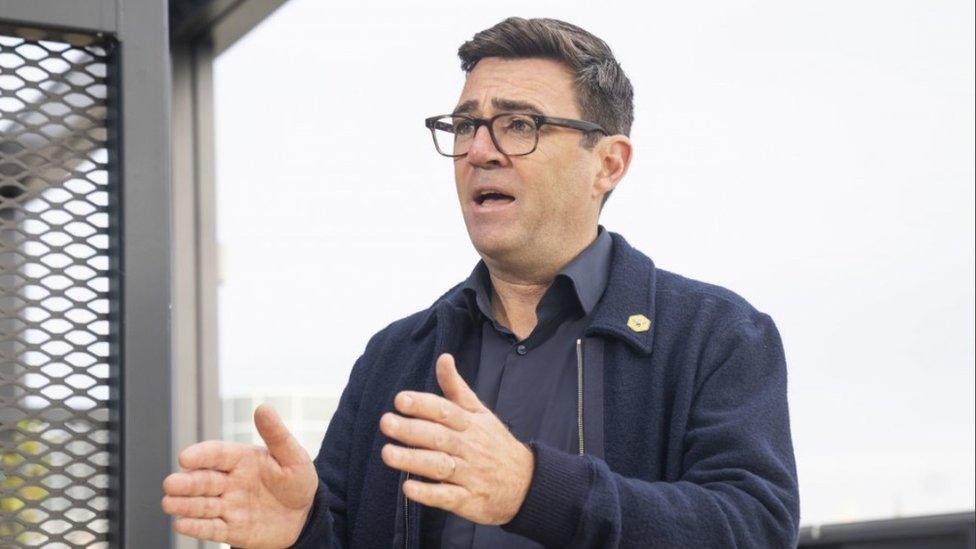
Andy Burnham and 10 Greater Manchester councils say charging drivers will not reduce emissions enough
Modelling has shown that simply charging high-emissions vehicles to drive in the zone in the centre of Manchester and Salford would not see the 2026 target met, the mayor and ten councils said.
Bury Council leader Eamonn O'Brien said the authorities could "prove our case" for a "fairer, cheaper, more affordable" investment plan that does not include charges.
This would see £51m investment in 64 new electric buses, bringing the fleet total to 199 by next year, and upgrading charging infrastructure at bus depots.
The proposal also includes a new £30m fund for licenced taxis to meet new emissions standards, and spending £5m on measures to manage traffic flow in Manchester and Salford, including Regent Road and Quay Street.
Liz Godfrey from clean air campaign group Mums for Lungs, said she thought the revised plan "lacked ambition" and called on the mayor to target World Health Organisation air pollution standards, rather than UK legal limits.
"All data shows children's lungs are damaged at much lower levels of pollution" than previously thought, she added.
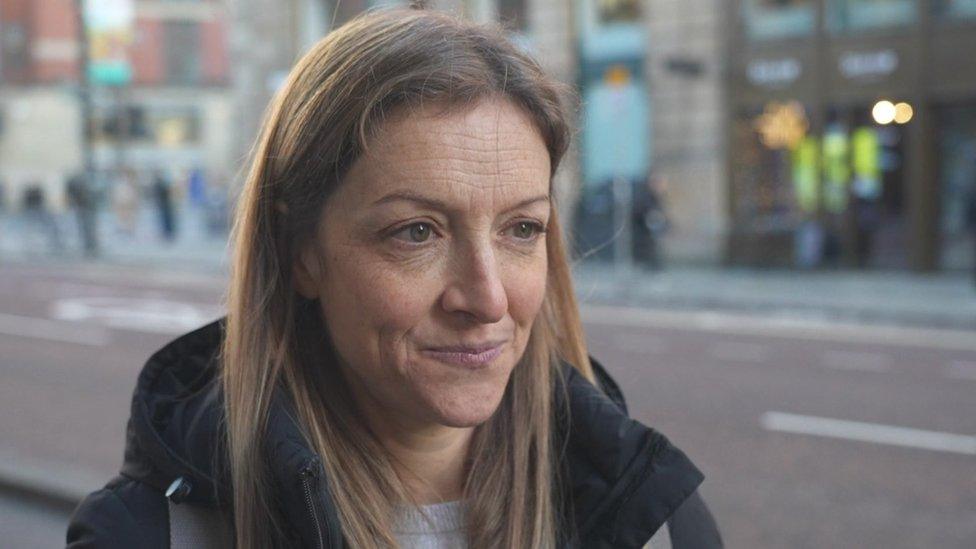
Liz Godfrey of Mums for Lungs said children's health had to be protected from toxic air
Sophie Wills-Virk of Asthma and Lung UK charity said the details behind the plan were not very clear, and added that Greater Manchester had the "highest rate of air pollution in the country".
She called on "government at all levels" to take steps to tackle the problem of toxic air.
The government will now consider whether a non-charging zone would meet legal requirements for reducing air pollution.

Why not follow BBC North West on Facebook, external, X, external and Instagram, external? You can also send story ideas to northwest.newsonline@bbc.co.uk, external
- Published11 December 2023
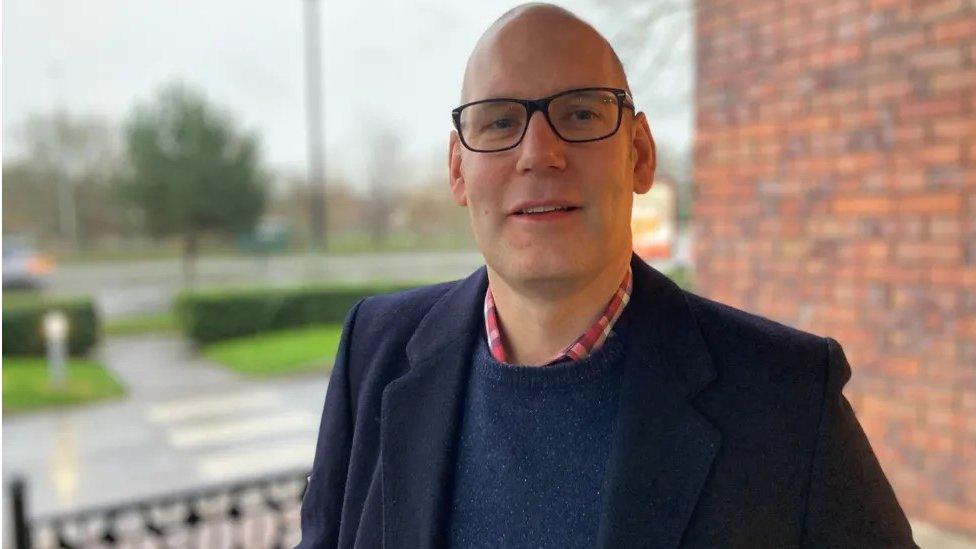
- Published9 July 2023
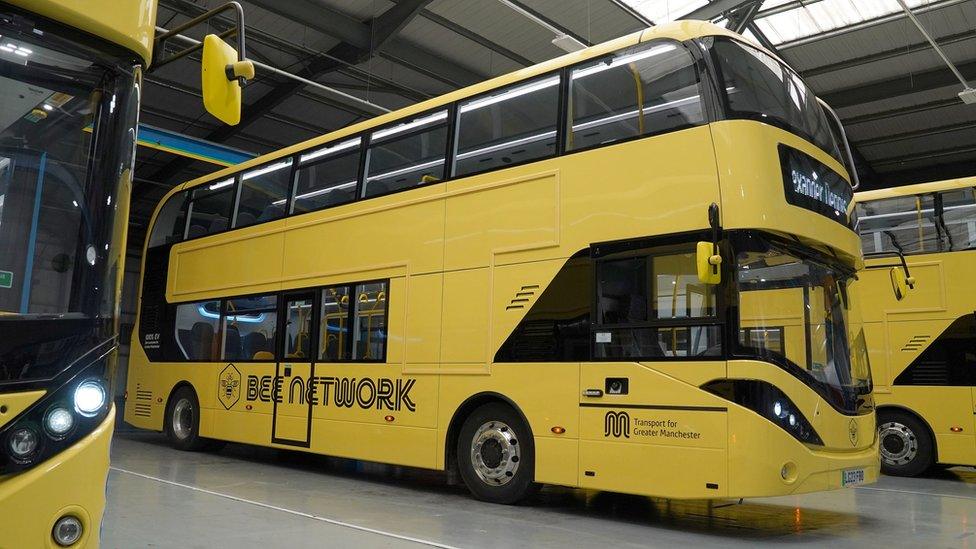
- Published3 June 2023
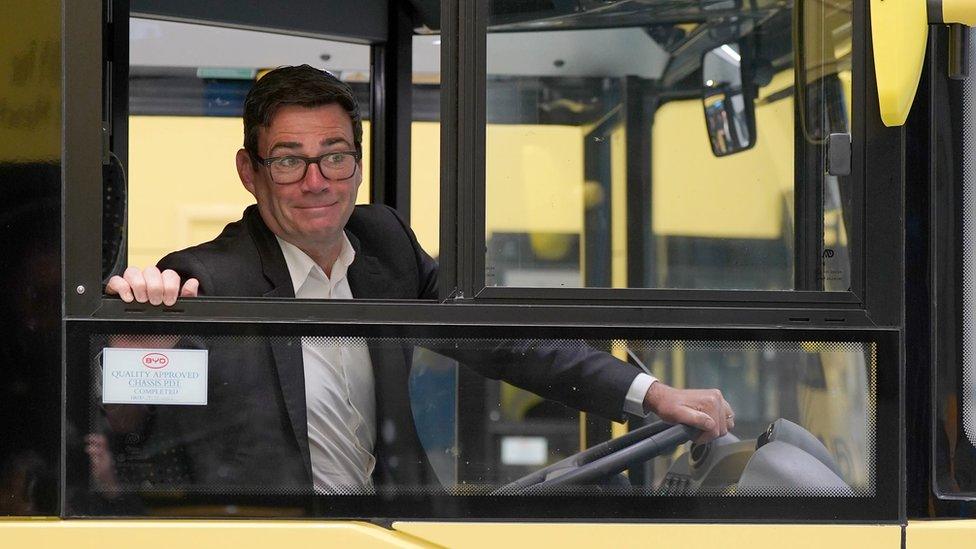
- Published4 February 2023
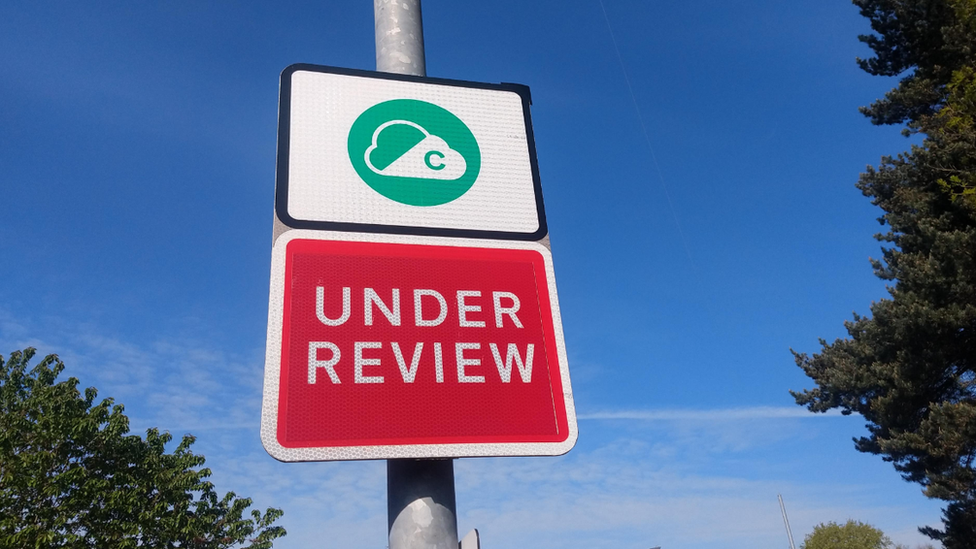
- Published21 October 2022
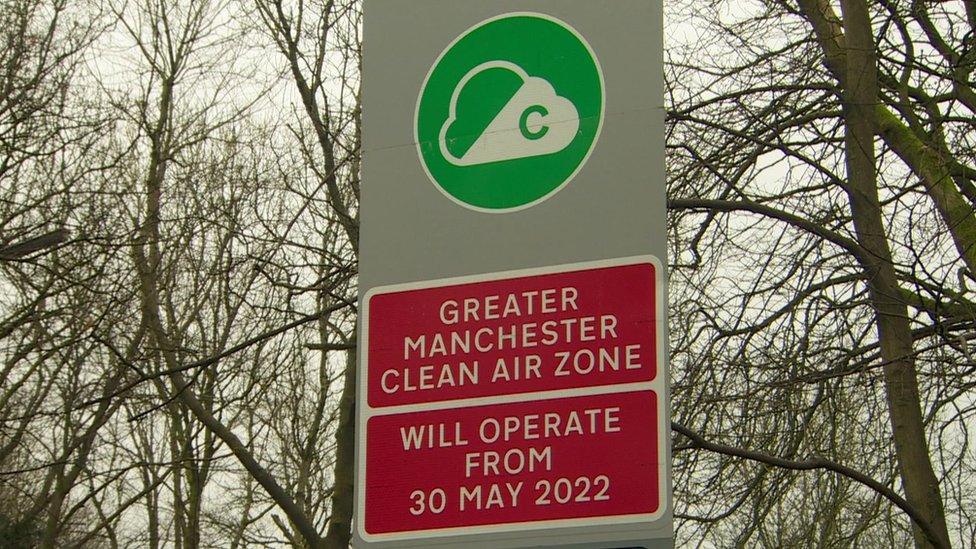
- Published4 February 2022

- Published12 April 2019
